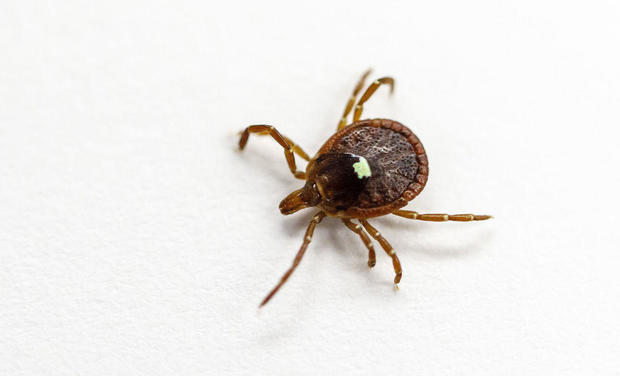Climate change fueling increase of lone star tick sightings in Minnesota
MINNEAPOLIS -- Human-influenced climate change is making many impacts across the upper Midwest, but one might have you itching to check yourself for ticks.
The warming temperatures have led to an increase of reports of the lone star tick in Minnesota. It's a species that is traditionally found in the southern United States, and can give people an allergy to red meat.
"Sometimes people who have a history of bites from this tick can develop a very specific kind of allergy to products that contain protein called Alpha-gal. It's often found in red meat, so sometimes it's called the 'red meat allergy'," said Elizabeth Schiffman, epidemiologist with the Minnesota Department of Health.
The tick is roughly the same size as a wood tick, with a round, brown body. It has a a bright white spot on its back, which is where it gets the "lone star" name.
The tick has been moving north for the last several years.
"The good thing is, we don't seem to have established populations of these in Minnesota yet," said Schiffman. "We've even gone out to places you know, where somebody reports a tick, and we go and look to see if we can find any others. And we usually don't, so we think they're probably kind of maybe coming in on a bird and just having to drop off at the right time or some other you know, migrating animal or something."
Schiffman estimates that because of climate change, this migration will keep on happening.
People who get bit are encouraged to remove the tick as soon as possible using tweezers.
"So step one, remove the tick from you or your pet. Step two, is kind of the harder one for people because it's really to just watch and wait. There's not a need necessarily to rush to the doctor or anything like that," she said.
If symptoms or fevers start to show, Schiffman recommends going to the doctor or veterinarian.





